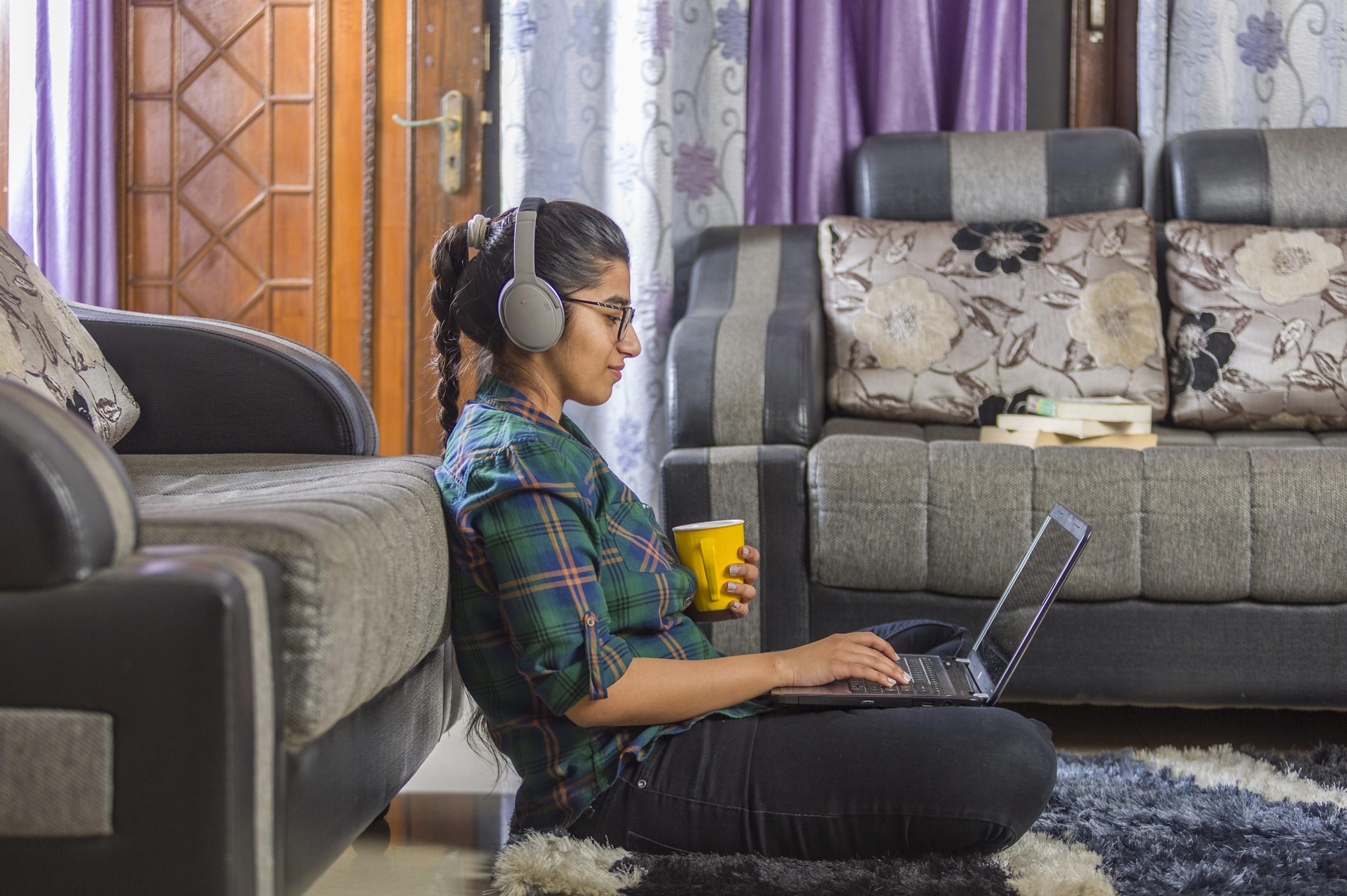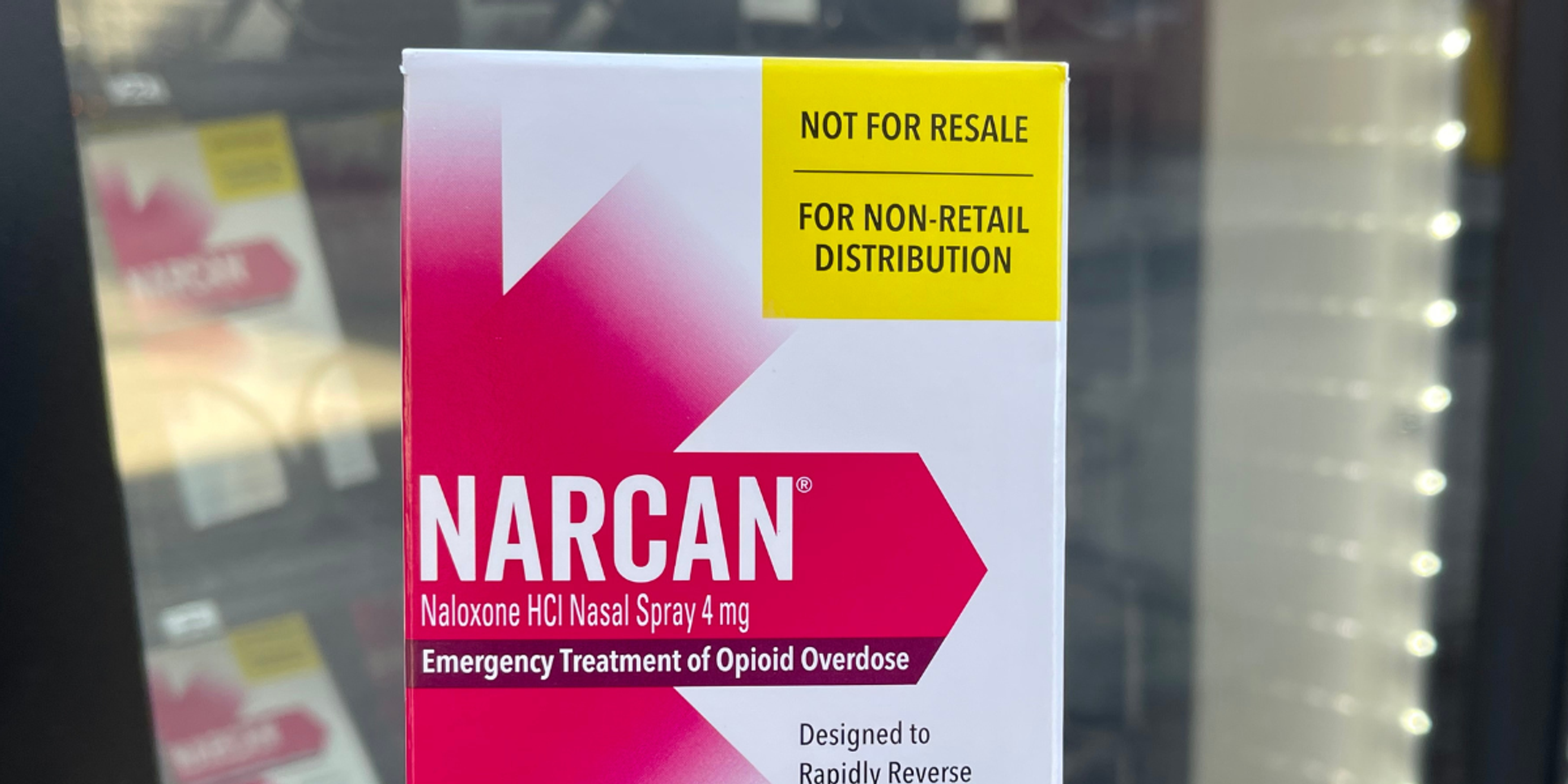Does ASMR Work?
Amy Barczy
| 3 min read
Amy Barczy is a former brand journalist who authored content at Blue Cross Blue Shield of Michigan. Prior to her time at Blue Cross from 2019-2024, she was a statewide news reporter for MLive.com. She has a decade of storytelling experience in local news media markets including Lansing, Grand Rapids, Holland, Ann Arbor and Port Huron.

Scroll through social media these days and it’s easy to come across videos labeled “ASMR” – and they’re not like other content you typically see. These videos are close-up shots of people doing simple things like pouring jellybeans into a jar, crinkling paper, painting their nails, mixing a cake, or whispering – sometimes for several hours. And millions of people have watched them. These videos are a trending internet phenomenon – and can be puzzling if you’re watching them for the first time.
What is ASMR?
ASMR stands for autonomous sensory meridian response – a term first coined by Jennifer Allen, who started an online discussion group about the sensation in 2010. It’s the name given to the sensation some people get from watching these types of videos or participating in similar activities: a tingling, static-like feeling across the scalp and down the back of the neck, connected to a feeling of relaxation and euphoria. Common triggers of ASMR include whispering, slow and repetitive movements, personal attention and crisp sounds. While the origins of the term are not scientific or research-based, the effects of this sensory phenomenon are just beginning to be studied.
Is there research?
Some initial research from 2015 has shown that being exposed to triggers of ASMR can temporarily alleviate symptoms of depression and chronic pain and improve mood. In this way, one study described the experience associated with ASMR as a flow-like mental state. This study noted an overlap between ASMR and a neurological condition where multiple senses get stimulated at the same time in a way that’s not typical for most people – something called synesthesia. People with synesthesia may say they can hear colors or taste sounds, for example. Another study used MRI scans of the brain to monitor activity when people were exposed to ASMR triggers. For people who experience ASMR, researchers found they had increased connectivity between certain regions of their brain and reduced connectivity in others compared to people who don’t experience ASMR.
Practical use
Despite a lack of broad scientific understanding about how ASMR triggers work, many people who find themselves responsive to the phenomenon use ASMR videos to fall asleep or relax. Others may use them to improve their mood or temporarily distract themselves from chronic pain. Others may use ASMR videos or triggers to try and relieve stress or symptoms of depression. For guidance on how to better manage symptoms of stress and depression in your life, a mental health professional is a great resource to engage with. Blue Cross Blue Shield of Michigan and Blue Care Network can help members find an in-network mental health professional by calling behavioral health access lines listed below: PPO: Behavioral Health Access Line | 1-800-762-2382
- A free and confidential resource that’s just a call away when you need immediate support. Behavioral health professionals answer, 24/7.
HMO: Behavioral Health Access Line | 1-800-482-5982
- Connect with a behavioral health clinician if you need help finding a mental health or substance use provider.
- Behavioral health clinicians are available for routine assistance from 8 a.m. to 5 p.m., Monday through Friday. For urgent concerns after hours, clinicians are also available 24 hours a day, seven days a week.
Learn more about mental health and options you have as a member to seek help at bcbsm.com/mentalhealth. More from MIBluesPerspectives:
- 5 Reasons to See a Doctor When You're Healthy
- Take the Well-Being Challenge
- How to Get More Sleep in 2022
Photo credit: Getty Images





